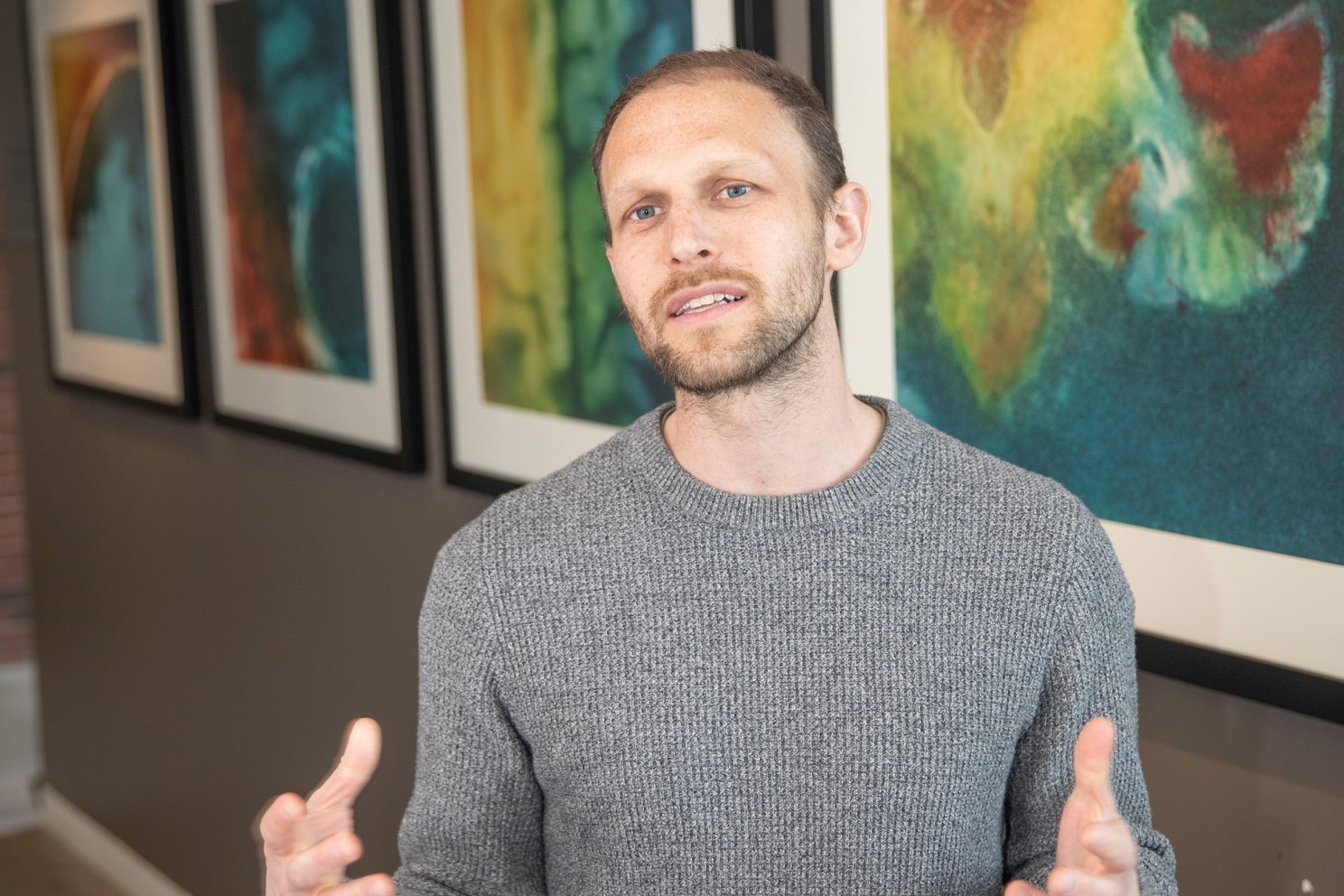Psychology Professor Samuel J. Gershman wins Polymath award

Samuel J. Gershman, a professor of psychology, was recognized for his work with single-cell organisms.
File photo by Kris Snibbe
Professor of Psychology Samuel J. Gershman is one of six academics to win the 2024 Schmidt Sciences Polymath award. Founded in 2021, the New York-based Schmidt Sciences Polymath Program recognizes risky, cross-disciplinary work that otherwise might be difficult to finance.
“My application described a broad new direction for research in my lab that started very recently,” shared Gershman, whose prize comes with up to $2.5 million in unrestricted funding over the next five years. “I want to use these resources to pursue it at higher velocity.”
Since joining Harvard in 2015, Gershman has worked at the intersection of cognitive science and computational neuroscience. His lab studies how the mind works by looking at human behavior but also by building quantitative “models of cognition.” That has allowed the team to simulate via computer everything from memory to decision-making, from vision to language so that these human behaviors can be analyzed mathematically.
During the pandemic, Gershman, who holds joint appointments in the Department of Psychology and Center for Brain Science, realized there was something more he hoped to pursue. “I wanted to understand how memories are stored in cells,” he said.
Previous generations of neuroscientists have puzzled over the same question, Gershman explained, with most working from the field’s traditional assumption that memories are stored by changing the strength of connections between neurons. “It turns out, there are a lot of problems with this way of thinking,” he noted. “For example, how could you have preservation of memories when your synapses are destroyed or dramatically changed?”
Gershman eventually formulated a new theory: “Maybe memories are stored in a very different way; maybe they’re stored at the level of single cells.”
That led to studying learning and memory in single-cell organisms — or creatures too tiny to have brains. “The one we’re focusing on right now is called Stentor,” Gershman said. “It belongs to a group of organisms called ciliates that are remarkably like neurons.”
The cognitive scientist’s previous work drew specifically on the tools of mathematics and artificial intelligence. Working with single-cell organisms meant adding a wet lab to his repertoire. Funding from the Schmidt Sciences Polymath Program will finance infrastructure improvements to the new lab as well as wages for additional researchers, he said.
Gershman was selected for the Schmidt Sciences Polymath Program from a global pool of 117 applicants representing 65 nominating institutions. Previous awardees include 21 multidisciplinary researchers representing four continents and six countries.




